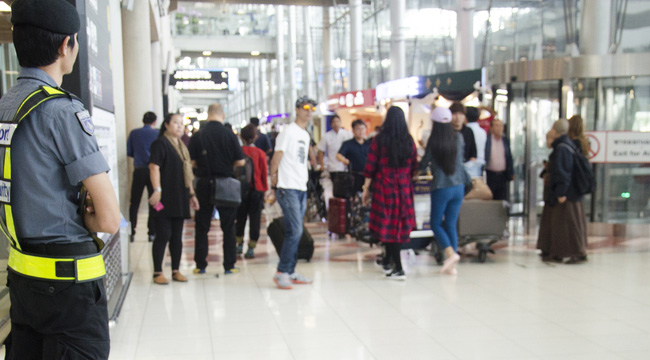
The U.S. government has begun asking some foreign travelers to share their social media accounts. The story originated at Politico and was verified by Mashable, which spoke to a rep for Customs and Border Protection (CBP). While some privacy advocates are criticizing the new protocol, Mashable noted that it’s not as panic-inducing as some would think.
The CBP will be asking for this information from travelers working through the Visa Waiver Program. This program allows travelers to enter the country for 90 days without a visa. The information is collected when travelers fill out an Electronic System for Travel Authorization form, which is used by the CBP to examine whether a traveler is a security risk. The request comes as many groups (such as ISIS) are using social media to recruit members and promote their messages. While Twitter has cracked down on the media savvy terrorist groups, they are still finding loopholes to communicate their messages.
The act may seem like the government is infringing on people’s privacy, but it is voluntary, and no one will be barred from entering the country for a refusal. But some privacy advocates are concerned, since the information can be shared with “appropriate federal, state, local, tribal and foreign governmental agencies.” In October, the ACLU penned an open letter saying this request could lead to first amendment violations:
“Many of these travelers are likely to have business associates, family, and friends in the U.S., and many of them will communicate with their contacts in the U.S. over social media. This data collection could therefore vacuum up a significant amount of data about Americans’ associations, beliefs, religious and political leanings, and more, chilling First Amendment freedoms.5 Indeed, the PIA acknowledges that DHS/CBP is likely to collect First Amendment protected information as part of this program.”
The program has already been in effect, but it is not known at this time whether it will be changed.
